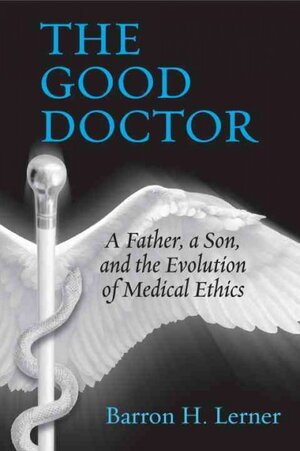'Good Doctor' Puts Past Medical Practices Under An Ethical Microscope
Dr. Barron Lerner is a doctor and the son of a doctor. He grew up thinking his father was a wonderful, gifted and caring physician, which he was. But after Lerner started studying bioethics, he began questioning some of his father's practices — practices which were typical of many doctors in the '60s.
There were times when his father would conceal information from his patient if he thought that was in the patient's best interest; there were times he didn't reveal that a patient's cancer was terminal; there were times, in the era before do-not-resuscitate orders, that his father would make that decision for a patient without consulting the family. This kind of paternalism would be considered a breach of ethics now.
In Lerner's new book, The Good Doctor, he compares his father's approach to medicine with the bioethics that are applied today. Lerner is a bioethicist, historian of medicine and internist at NYU's School of Medicine. He's the author of several books and has contributed to The New York Times column Well, The Atlantic and The Huffington Post.
His father, Meyer Lerner, was an infectious disease specialist and kept a journal in which he wrote about his medical experiences from 1961 until Parkinson's disease ended his career in 1998. Lerner drew on those diaries for his book. He joins Fresh Air's Terry Gross to discuss medical paternalism and the ethics of doctors treating their relatives.

No comments:
Post a Comment